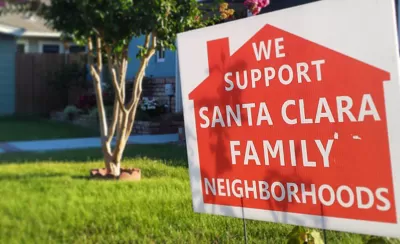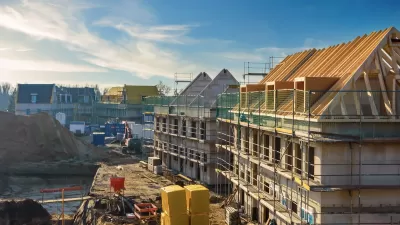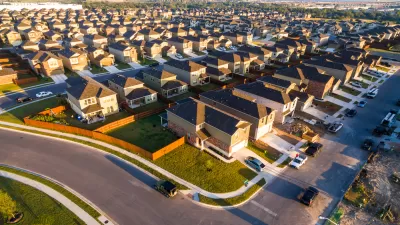New research using the Terner Center California Residential Land Use Survey also connects demographic trends to housing development opposition.

Jonathan Rothwell has published a new paper with the Terner Center for Housing Innovation at UC Berkeley titled "Land Use Politics, Housing Costs, and Segregation in California Cities."
"Using data from a new survey of land use planners in approximately 270 California jurisdictions (the Terner Center California Residential Land Use Survey), I find that the share of land zoned for single-family housing and more restrictive minimum lot size requirements predict higher housing costs compared to other jurisdictions in the same metropolitan area," explains Rothwell in the abstract.
That's not the only finding that fits a very pro-development, and pro-density, narrative about housing affordability in the state: "Likewise, the degree of political opposition to housing development predicts higher prices, longer delays for lawful projects, and a lower likelihood of zoning reform. This opposition to development is greater in areas with a higher proportion of non-Hispanic White and highly educated residents."
And there's a racial theme that runs through the housing and development politics of the state as well. "Finally, I find that both the intensity of land use and degree of opposition to development predict a lower share of Black, Hispanic, and blue-collar workers living in the area, compared to jurisdictions in the same metropolitan area," writes Rothwell.
The entire paper is available to read online.
FULL STORY: Land Use Politics, Housing Costs, and Segregation in California Cities [pdf]

Maui's Vacation Rental Debate Turns Ugly
Verbal attacks, misinformation campaigns and fistfights plague a high-stakes debate to convert thousands of vacation rentals into long-term housing.

Planetizen Federal Action Tracker
A weekly monitor of how Trump’s orders and actions are impacting planners and planning in America.

San Francisco Suspends Traffic Calming Amidst Record Deaths
Citing “a challenging fiscal landscape,” the city will cease the program on the heels of 42 traffic deaths, including 24 pedestrians.

Defunct Pittsburgh Power Plant to Become Residential Tower
A decommissioned steam heat plant will be redeveloped into almost 100 affordable housing units.

Trump Prompts Restructuring of Transportation Research Board in “Unprecedented Overreach”
The TRB has eliminated more than half of its committees including those focused on climate, equity, and cities.

Amtrak Rolls Out New Orleans to Alabama “Mardi Gras” Train
The new service will operate morning and evening departures between Mobile and New Orleans.
Urban Design for Planners 1: Software Tools
This six-course series explores essential urban design concepts using open source software and equips planners with the tools they need to participate fully in the urban design process.
Planning for Universal Design
Learn the tools for implementing Universal Design in planning regulations.
Heyer Gruel & Associates PA
JM Goldson LLC
Custer County Colorado
City of Camden Redevelopment Agency
City of Astoria
Transportation Research & Education Center (TREC) at Portland State University
Jefferson Parish Government
Camden Redevelopment Agency
City of Claremont





























